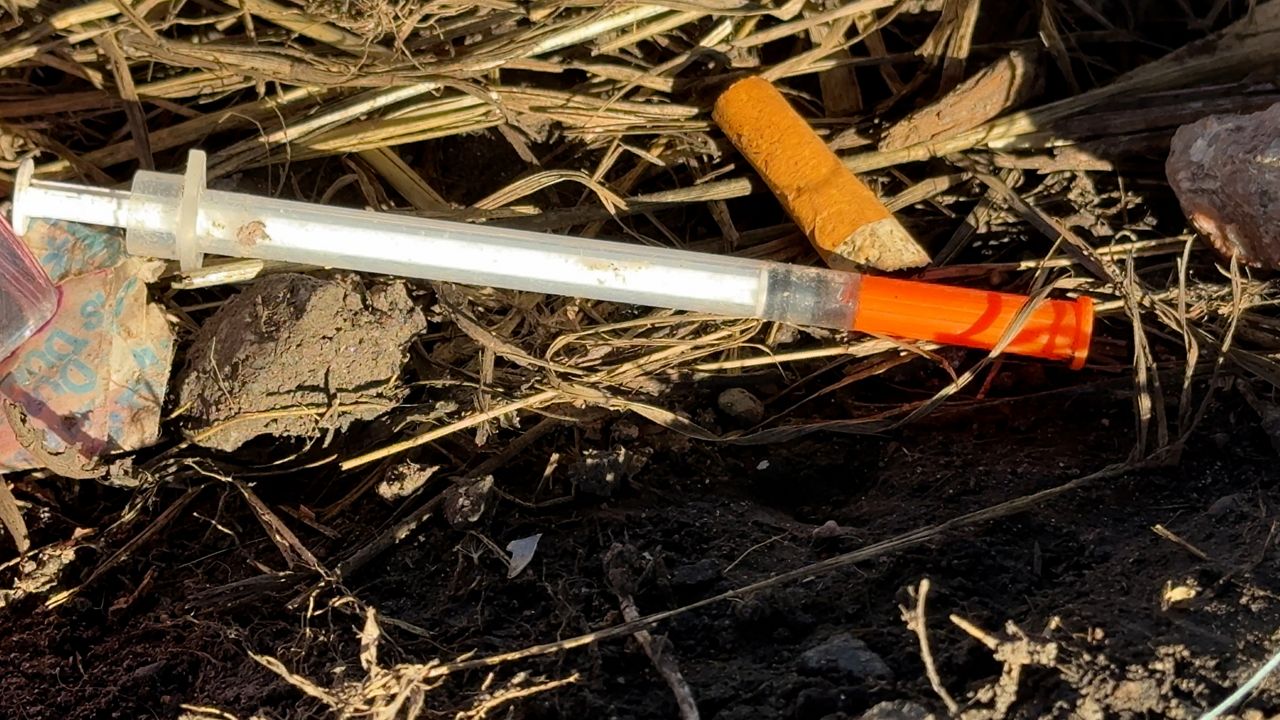AUGUSTA — City staff is investigating the possibility of creating a buyback program to help get used needles off the streets.
Earlier this month, City Councilor Kevin Judkins proposed the idea of paying 5 cents per needle, similar to the state’s program for bottles and cans.
“I used to own a redemption center and the bottle law really has worked,” Judkins said at the Nov. 14 City Council meeting. “It’s taken a lot of litter off our streets and such. I know that used needles in every nook and cranny of Augusta is a problem.”
Since then, city staff have been looking into how the program could work, City Manager Jared Mills said Tuesday.
“We’re currently researching,” he said. “We get the sense from the council that they want more information.”
Last month, Portland City Council approved a “Syringe Redemption Pilot Project” that would pay 5 cents per used syringe with a total program cost of $52,000. As proposed, the program would accept 50 participants who could be paid a maximum of $10 per day.
Councilor April Fournier said the Portland proposal is based on similar programs in New York and Boston.
Following council approval, Portland city staff will now develop policies to address issues such as safety standards, data collection and program evaluation, according to a memo from City Manager Danielle West.
One of the factors driving the uptick in needles on city streets is a state law that allows syringe service programs to distribute up to 100 syringes per client. In Portland, the distribution of syringes has gone up from 10% to 83% each year, the memo states.
“While the number of syringes collected each year has also increased, so too have reports of improperly disposed syringes on public and private property,” West wrote in the memo.
In Sanford, council members took a different approach to what city staff described as “an observed increase in inappropriately discarded needles.” Earlier this month, the council voted to restrict the needles distributed through a needle exchange program to a 1-to-1 exchange.
Back in Augusta, if the city opts to move forward, it will likely partner with an existing nonprofit already doing similar work to collect used syringes, Mills said.
And like in Portland, the program would be supported by opioid settlement funds, which are being distributed to states because of national litigation against the pharmaceutical industry.
So far, Augusta has received about $750,000 in settlement money, some of which has been earmarked to support a community liaison at the police department.
Mills, who worked in law enforcement for 25 years including a stint as Augusta chief before becoming city manager, said the police response to substance-use disorder has changed dramatically.
“When I started there was no services,” he said. “If you were addicted, you were treated like anybody else, the drug dealers, the traffickers, it was just a lower-level crime and it was arrest, charge and use the criminal justice system.”
But Mills said it didn’t help people get better.
Now when he hears of someone who needs help, he knows there are programs available and that the police department can help steer people in the right direction.
He said city staff will likely be ready to present more information on a possible needle buyback program early next year. Using a small portion of the city’s opioid funds toward a buyback program would address one of the larger societal issued caused by the epidemic, he said.
“How do you remediate those issues caused by the opioid crisis?” he asked. “This is one of them. It would definitely qualify for that funding and it would be put to good use.”



